Finding the Form with Frances Boyle
By Frances Boyle
Reconstructing how I came to a particular poem and a particular form often involves a bit of detective work, poring through old notebooks and drafts. When I took a look to try and remind myself of the sources for the three poems that I’m honoured to have in issue 171 of The New Quarterly, I was somewhat surprised to discover that drafts of all three were written in the summer of 2021. Two came in response to other poems and to taking a walk. The other came from neither of these but from a secret third thing.
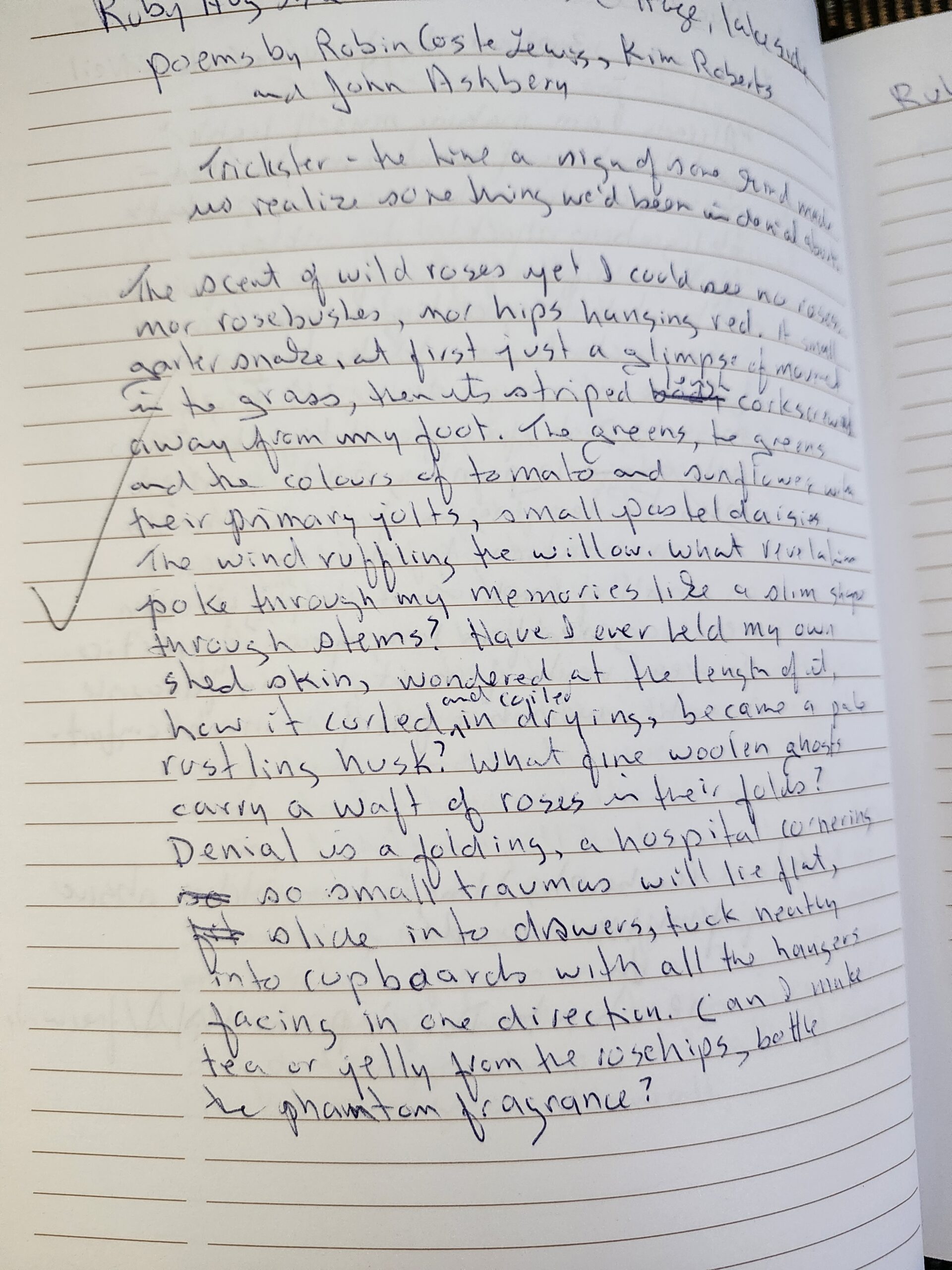
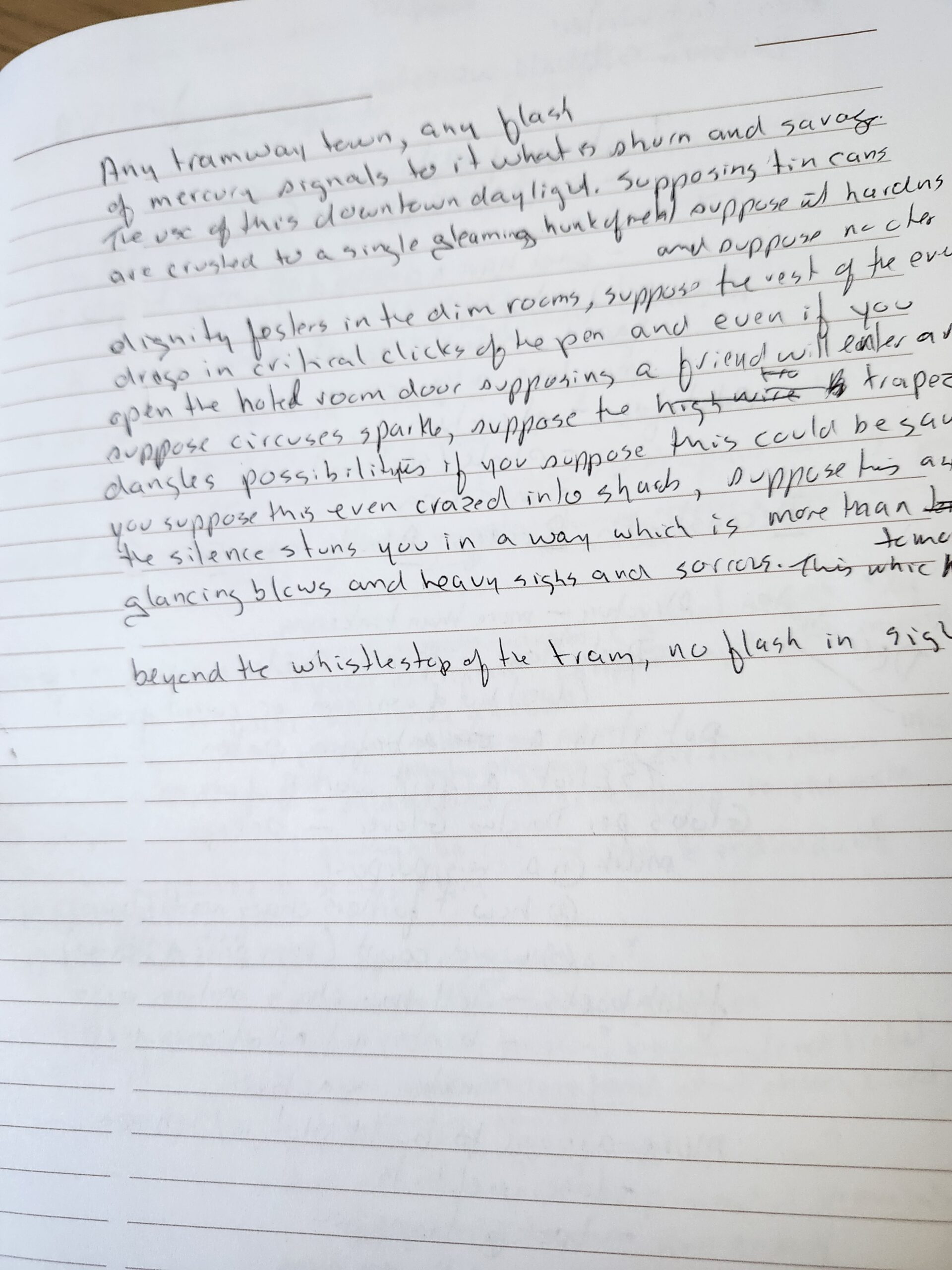
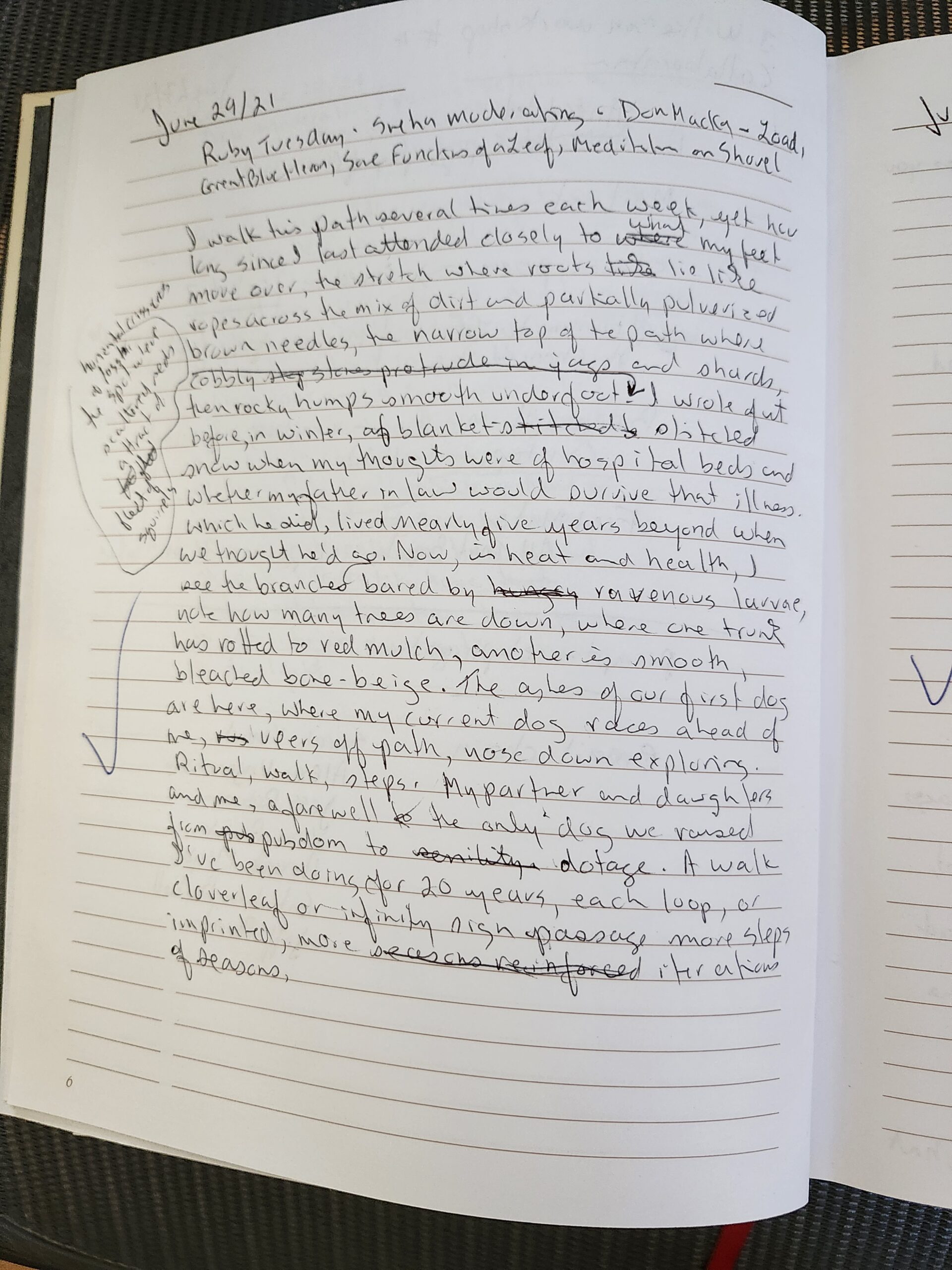
In the session where “Creatures of the Field” began, my long-standing Ruby Tuesday writing group read poems by Kim Roberts and John Ashbery, as well as Robin Coste Lewis’s poem “Summer” in which shed snakeskins appear. We also considered Lewis’s comment that her poem is about “that brilliant trickster Denial’s natural triumph over our own self-perception”. Our host, Lise Rochefort, took us for a walk in her cottage garden, and challenged us to use a moment that stayed with us from the walk and link it to a realization, or a trickster revelation. Like most of my writing, the draft spilled out as freewrite, moving from the sensory (a phantom smell of roses, and the synchronicity of a small snake gliding away from my foot) to memory and reflection. I added line breaks so that, after some shifting, the poem seemed to fall into its ultimate shape of end-stopped six-line stanzas. The title probably came last; while this is not a religious poem, I felt the psalm-like phrase I ultimately chose was apt given the slight formality of tone in the poem.
“Pine Hill, Perennial” also began as a response to evocative writing, and to a walk. At another Ruby Tuesday session, group member Sneha Madhavan-Reese brought four poems by Don McKay to read, and suggested that, inspired by them, we write about an object or animal with special attention to detail and compassion. In addition to the general loveliness of all of the McKay poems, one included a cameo appearance by a dog. That was enough to remind me of a habitual dog-walking spot, one I had written about in an earlier poem, “Dogwood”, from my debut collection, Light-carved Passage (recently re-released as a free e-book by Doubleback Books, if I can add a plug for it here). Since the new draft actually made reference to the earlier one and carried forward some of its work, I decided to title it in tribute to the walks that inspired both. I carved the form of enjambed couplets out of the initial rambling free-write because I felt the pacing of the couplets and their lines of similar length matched the pace and mood of the poem, and the walk.
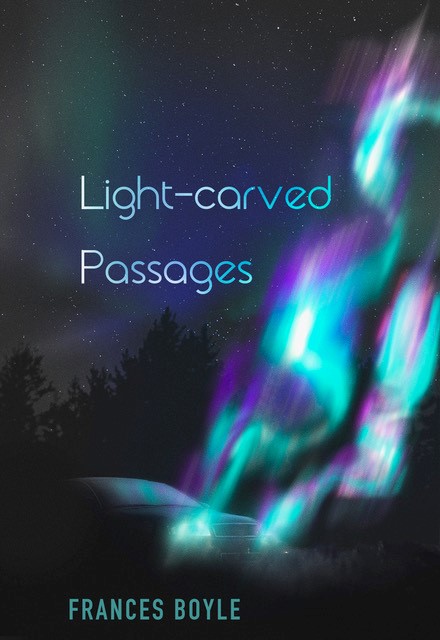
The odd poem out of this trio is “Any tramway town”. In my notebook, it appears with no indication of what inspired it. It does follow notes on a workshop about found poetry, so could possibly have been a repurposing of lines from earlier writing of mine (following a workshop prompt). But, if so, I have no record of anything similar in prior drafts, and have no memory of how I came up with these rather surreal images. A third secret thing, but a secret from myself! A clue is that the draft repeated the words “suppose” and “supposing” (most of which were removed in revision) so may have been part of a prompt I got from somewhere. The first line of the draft poem became the title. The form, with three slightly jagged couplets followed by a single line, then another such grouping and a final pair of even shorter lines felt appropriate to the jumps from image to image.
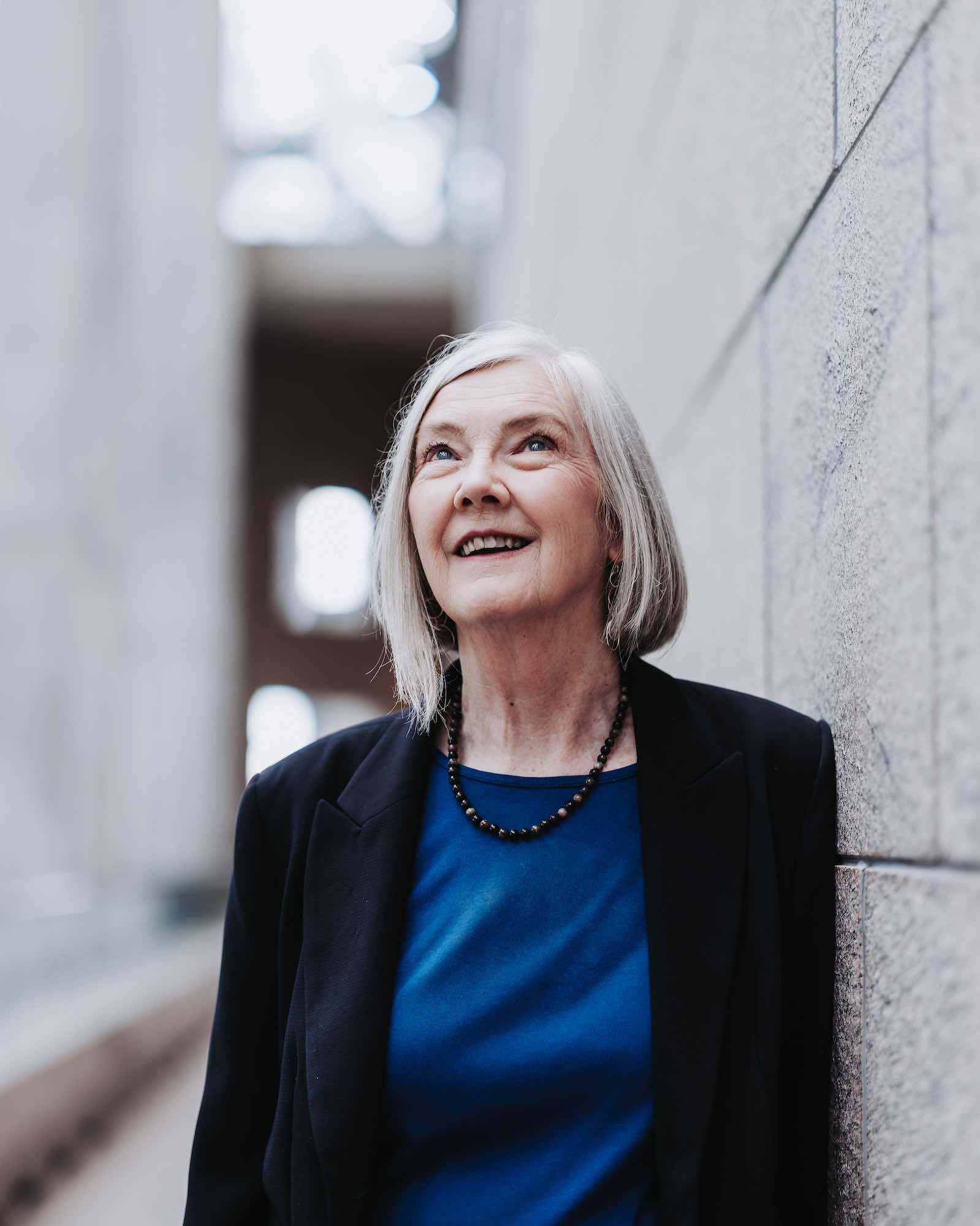
Frances Boyle’s latest books are Openwork and Limestone (Frontenac House, 2022), and Light-carved Passages (Doubleback Books, 2024) a new, e-book edition of her 2014 debut collection. Frances is also the author of Tower, a novella (Fish Gotta Swim Editions, 2018), Seeking Shade, a short story collection that was a finalist for the Danuta Gleed Award (The Porcupine’s Quill, 2020), and Skin Hunger, a novel forthcoming with Guernica Editions in 2026. Recent and upcoming publications include work in The Honest Ulsterman, iamb – poetry seen and heard, filling Station, The Mersey Review and The Fiddlehead. Originally from the prairies, Frances lives and writes in Ottawa.
Photo by Aaron Burden on Unsplash

